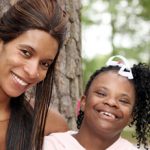 This project assesses whether an asset-building approach is effective in promoting a safe, stable and nurturing relationship that reduces risk of child maltreatment. For more information, please click here.
This project assesses whether an asset-building approach is effective in promoting a safe, stable and nurturing relationship that reduces risk of child maltreatment. For more information, please click here.
The Gender-based Violence Information Management System (GBVIMS+) is an inter-agency survivor-centered system that provides a technological solution to providers of GBV case management services in humanitarian settings. In addition to helping case workers and supervisors systematically manage case information, the tool honors principles of safety, non-discrimination, and the right to self-determination, facilitates the quality assessment of services, and generates aggregate, anonymized statistics to inform improved GBV prevention and response efforts. Washington University in St. Louis will be leading an upcoming evaluation of GBVIMS+ in a few countries, employing an implementation science framework for generating learning.
PI: Lindsay Stark
This multi-site, mixed-methods study funded by UNICEF explores the effects of the COVID-19 pandemic and its corresponding movement restrictions on women and girls’ safety and well-being and their knowledge of and access to gender-based violence (GBV) services. The study employs online surveys and key informant interviews to (1) understand how the pandemic has impacted GBV service delivery, (2) assess challenges providers have faced in reaching especially marginalized and vulnerable women and girls, and (3) identify innovative and sustainable solutions for delivering GBV services during future pandemics. The study focuses on women and girls in humanitarian, host-country, and high-violence settings. Current sites include Italy, Guatemala, Brazil, Zimbabwe, and Brazil.
PI: Lindsay Stark
Co-I: Ilana Seff
This partnership with Transcultural Psychosocial Organization (TPO) Uganda investigates the effectiveness and implementation of the Journey of Life (JoL) program in Kiryandongo refugee settlement, Uganda with funding from USAID. JoL addresses the social ecologies of children and adolescents by working with caregivers, educators, and community members to understand the importance of their involvement in the protection of children. Preventive and curative measures for improving community mental health and psychosocial outcomes include bolstering coping skills, meaning-making, social functioning, and building social capital.
PI: Lindsay Stark
Principal Investigators: Melissa Jonson-Reid, PhD, Funder
Administration of Children and Families, USDDHS (90 CA1832)
Co-Investigators: John Constantino, F. Brett Drake
Collaborating Agencies:
Youth in Need Early Head Start
Washington University in St. Louis, School of Medicine, Division of Child Psychiatry
Washington University in St. Louis, Brown School of Social Work, Center of Violence and Injury Prevention, FUNDER
U.S. Administration for Children and Families, Office of Planning, Research, and Evaluation
Principal Investigators: John Constantino, Melissa Jonson-Reid
 In collaboration with In collaboration with St. Louis-based Family Resource Center, this evaluation will examine the effectiveness of integrating Parent Child Interaction Training into the community-based agency’s service offerings. For more information, please click here.
In collaboration with In collaboration with St. Louis-based Family Resource Center, this evaluation will examine the effectiveness of integrating Parent Child Interaction Training into the community-based agency’s service offerings. For more information, please click here.
 This project will evaluate the impact of a CBITS-adapted program, GAIN, to prevent youth violence and intimate partner violence among girls who have experienced prior child maltreatment. For more information, please click here.
This project will evaluate the impact of a CBITS-adapted program, GAIN, to prevent youth violence and intimate partner violence among girls who have experienced prior child maltreatment. For more information, please click here.
 Safe N’ Sound is a computer-based program developed by our team that delivers tailored information to parents of children ages 0-4 about the specific injury prevention practices they can adopt in order to make their home and car safer for their child. For more information, please click here.
Safe N’ Sound is a computer-based program developed by our team that delivers tailored information to parents of children ages 0-4 about the specific injury prevention practices they can adopt in order to make their home and car safer for their child. For more information, please click here.
 Domestic violence rates among combat veterans with PTSD are higher than the general population. Using community-based system dynamics, prevention strategies are developed to address this. For more information, please click here.
Domestic violence rates among combat veterans with PTSD are higher than the general population. Using community-based system dynamics, prevention strategies are developed to address this. For more information, please click here.
 This project looks at how child welfare case managers currently interact with parents and caregivers around issues of behavior management, and the response and receptivity to parent training concepts. For more information, please click here.
This project looks at how child welfare case managers currently interact with parents and caregivers around issues of behavior management, and the response and receptivity to parent training concepts. For more information, please click here.
 This project creates a profile of youth at risk for suicide attempt or ideation using a Latent Class Analysis of suicide risk factors, such as depressive symptoms and substance abuse. For more information, please click here.
This project creates a profile of youth at risk for suicide attempt or ideation using a Latent Class Analysis of suicide risk factors, such as depressive symptoms and substance abuse. For more information, please click here.
 Nationally, so little is known about the treatment of survivors who are victims of violence that describing and evaluating the effectiveness of current services is among the most important areas of research on violence against women. For more information, please click here.
Nationally, so little is known about the treatment of survivors who are victims of violence that describing and evaluating the effectiveness of current services is among the most important areas of research on violence against women. For more information, please click here.
 Without appropriate interventions and the supports needed, justice-involved women and their children are at risk for poor outcomes. For more information, please click here.
Without appropriate interventions and the supports needed, justice-involved women and their children are at risk for poor outcomes. For more information, please click here.
 This project evaluates the potential of the Yellow Ribbon Reintegration Program as a platform for identifying the mental health and associated reintegration service needs of soldiers and their families. For more information, please click here.
This project evaluates the potential of the Yellow Ribbon Reintegration Program as a platform for identifying the mental health and associated reintegration service needs of soldiers and their families. For more information, please click here.
 This study sheds light on the socio-cultural factors related to suicidal behaviors among Dominican Republic youth and how they compare to their Dominican counterparts in New York City. For more information, please click here.
This study sheds light on the socio-cultural factors related to suicidal behaviors among Dominican Republic youth and how they compare to their Dominican counterparts in New York City. For more information, please click here.
 This annual meeting explores cross-sector service use of neglected children and their families and discusses implications for evidence-based practice and policy. For more information, please click here.
This annual meeting explores cross-sector service use of neglected children and their families and discusses implications for evidence-based practice and policy. For more information, please click here.
 This project aims to improve developmental outcomes for young children served by the Missouri Children’s Division. For more information, please click here.
This project aims to improve developmental outcomes for young children served by the Missouri Children’s Division. For more information, please click here.
 This project will develop new approaches to engage fathers in Triple P, an evidence-based parenting intervention particularly well-suited to vulnerable populations. For more information, please click here.
This project will develop new approaches to engage fathers in Triple P, an evidence-based parenting intervention particularly well-suited to vulnerable populations. For more information, please click here.
 The goal of this project is to identify factors that influence the adoption of an evidence-based injury prevention programming by children’s hospitals in the United States. For more information, please click here.
The goal of this project is to identify factors that influence the adoption of an evidence-based injury prevention programming by children’s hospitals in the United States. For more information, please click here.
 Children within the child welfare system are at an unacceptably high risk for serious disruptive behavior problems such as conduct disorder. For more information, please click here.
Children within the child welfare system are at an unacceptably high risk for serious disruptive behavior problems such as conduct disorder. For more information, please click here.
 The purpose of this project is to adapt and integrate an evidence-based injury prevention program, Safe N’ Sound, into established home visitation models, using the home visitation agency of Nurses for Newborns as a pilot. For more information, please click here.
The purpose of this project is to adapt and integrate an evidence-based injury prevention program, Safe N’ Sound, into established home visitation models, using the home visitation agency of Nurses for Newborns as a pilot. For more information, please click here.
 This 12-month study will assess the incidence of sexual assault amongst individuals with developmental disabilities. For more information, please click here.
This 12-month study will assess the incidence of sexual assault amongst individuals with developmental disabilities. For more information, please click here.
 Risk-based assessment/intervention strategies can be applied within treatment-focused child welfare systems to prevent recurrent maltreatment. For more information, please click here.
Risk-based assessment/intervention strategies can be applied within treatment-focused child welfare systems to prevent recurrent maltreatment. For more information, please click here.
Child maltreatment (CM) and intimate partner violence (IPV) are serious social and public health problems that have high prevalence rates and equally high needs for interdisciplinary research. For more information, please click here.
 A one-year Department of Veterans Affairs project seeks to elicit stakeholder perspectives on the barriers to Veterans accessing suicide prevention services in their local communities. For more information, please click here.
A one-year Department of Veterans Affairs project seeks to elicit stakeholder perspectives on the barriers to Veterans accessing suicide prevention services in their local communities. For more information, please click here.
 The project focuses on reducing pediatric injuries by taking injury prevention education into the homes of young children. For more information, please click here.
The project focuses on reducing pediatric injuries by taking injury prevention education into the homes of young children. For more information, please click here.
 The major purpose of the project is to develop design options for a study or set of studies to improve the accurate and ongoing surveillance of the incidence of child abuse and neglect and related risk and protective factors. For more information, please click here.
The major purpose of the project is to develop design options for a study or set of studies to improve the accurate and ongoing surveillance of the incidence of child abuse and neglect and related risk and protective factors. For more information, please click here.
This study is the first large, longitudinal study of low-income individuals to determine predictors and pathways to early adult violence. For more information, please click here.
 This study is the first large, longitudinal study of low-income individuals to determine predictors and pathways to early adult violence. For more information, please click here.
This study is the first large, longitudinal study of low-income individuals to determine predictors and pathways to early adult violence. For more information, please click here.
 This funded project provides a medical home and pregnancy prevention to youth ages 12 to 17 entering foster care in the metropolitan region. For more information, please click here.
This funded project provides a medical home and pregnancy prevention to youth ages 12 to 17 entering foster care in the metropolitan region. For more information, please click here.
 In collaboration with Nurses for Newborns, this study addresses issues of maternal and child well-being with significant public health relevance, specifically child abuse and injury prevention, and reducing post-partum maternal depression and stress. For more information, please click here.
In collaboration with Nurses for Newborns, this study addresses issues of maternal and child well-being with significant public health relevance, specifically child abuse and injury prevention, and reducing post-partum maternal depression and stress. For more information, please click here.


